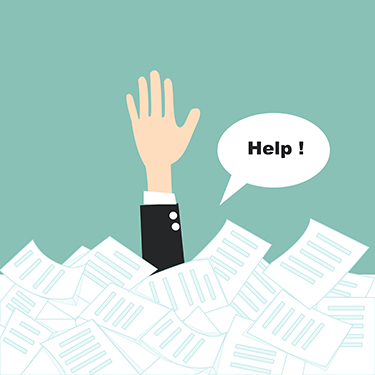|
Subscribe / Renew |
|
|
Contact Us |
|
| ► Subscribe to our Free Weekly Newsletter | |
| home | Welcome, sign in or click here to subscribe. | login |
Money
| |
June 13, 2016
There's still time for ‘spring cleaning' in your financial life
Special to the Journal

There is a saying: spring is the time of plans and projects. After a long winter, this generally holds true. The weather is warmer and days are longer. For many, this season of renewal brings with it an urgency to start fresh — to clean out the old and get with the new.
Most of us think of spring cleaning as house and yard work. But have you ever thought about a financial spring cleaning?
Taking the time to organize and eliminate unnecessary paperwork and policies, review your budgets and evaluate your income? If not, this should be the year you start.
Get help to de-clutter
Just as you take stock of what needs to be done around the house and in the yard come spring, you must also conduct a site review of your financial house. For starters, who is involved in the decision-making process? How open are you with your family about the budget and financial strategy? Perhaps it can be more of a team effort and other members of the household can contribute ideas that will help save the family money, reallocate spending and budget with purpose.
As you're enlisting help and discussing future financial goals, base it on real data.
Pull out files and old boxes filled with financial documents. Review and analyze them to ensure you're still on the right financial path, and weed out what you don't need. A good rule of thumb is to keep tax records for seven years, pay stubs and bank statements for a year and credit card statements for at least 45 days.
Former apartment leases, old bank statements, canceled checks, utilities and accounts no longer in use can be shredded. It is important to shred old financial documents so you don't put yourself at risk for possible identity theft. It also doesn't hurt to look into old or little-used accounts. They're like your couch: You never know what loose change you'll find.
Once you've sifted through the reams of paper, organize what remains. If you really want to clear off the shelves, you can scan your documents and store them electronically; just make sure you have reliable back up or are using a secure and trusted online document storage provider.
Make a master plan
Hopefully you have recently filed your taxes. If so, everything you need to know about how much money you make and what your basic expenses are can be found in your return.
Knowing how much you made and spent the previous year will help you reevaluate your budget, reduce financial clutter and analyze what expenses can be eliminated. To do this, you should review all plans and policies you have in place. You might be paying more than you need to for certain items or services. For example, can you save money on your phone, cable or Internet expenses by switching plans or carriers?
What about your insurance policies? They shouldn't be gathering dust. Homeowner's insurance, renter's insurance, health care insurance and auto insurance are some of the most-commonly held policies. Make sure you aren't overpaying or underpaying on them. For example, take an inventory of your possessions by adding up how much it would cost to replace them. Then compare this figure with the amount of coverage in your homeowner's policy to determine whether you are over- or under-insured.
If you've acquired expensive, high-worth items, such as jewelry, a boat or artwork, make sure to adjust your policy accordingly. If you have older children who are still on your health insurance policy, consider whether they should be dropped.
In looking at your car insurance, evaluate whether you still need to carry collision coverage. Make sure your coverage meets your needs and your beneficiary designations are current. Then, research and request quotes from different companies to find the right fit, and see if you can realize some savings by bundling policies.
Your financial spring cleaning is also a good time to set up or review your retirement plan. Ask yourself if it still reflects the goals you've discussed with your family and if it aligns with your future needs and wants. Also review estate plans or wills. If you don't have anything in place, this is the time to do it since you want to ensure you have full control of how your assets are distributed when you're gone.
Finally, check your credit score. You can get a free report annually from each of the three major credit bureaus (Equifax, Experian and TransUnion) by visiting http://www.annualcreditreport.com. Make sure your reports are accurate and reflect your current loans and credit lines. And while you're on the computer, take a few moments to change passwords and organize them. This will help keep your private information private.
Enjoy the benefits
If you weren't tired after cleaning your house, chances are you will be after reviewing and spring-cleaning your finances. It takes a good deal of work, time and effort, but it's as important to securing your financial future as fixing a leaky roof is to protecting the stability of your house.
And at the end of the day, getting your financial house in order will change your relationship with money, change your relationship with your family and put you on the path of financial independence.
Carol K. Nelson is the Pacific Region executive and Seattle market president for KeyBank.


